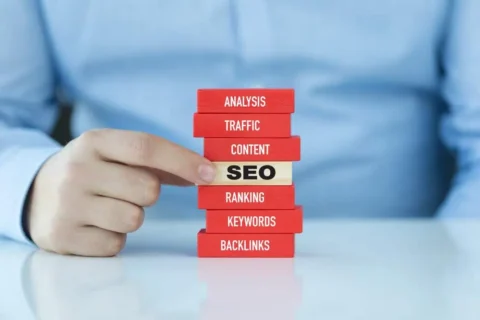In today’s UK construction industry, energy efficiency is a fundamental requirement, not just a trend. Standard Assessment Procedure (SAP) assessors play a crucial role in this push for sustainability, but their potential contributions extend far beyond regulatory compliance.
While many view an SAP assessor as just someone to help them tick a mandatory checkbox, forward-thinking construction professionals are discovering the significant value these experts can bring throughout the entire project lifecycle.
Understanding the Basics: What Do SAP Assessors Do?
Before we explore their additional benefits, let’s outline the core responsibilities of an SAP assessor:
- Evaluate a dwelling’s energy performance
- Calculate the SAP rating and Environmental Impact (EI) rating
- Produce Energy Performance Certificates (EPCs)
- Ensure compliance with Part L of the Building Regulations
These tasks are essential for meeting regulatory requirements, but they represent only a fraction of what a skilled SAP assessor can offer your project.
Early Engagement: Maximising Design Potential
One of the most impactful ways SAP assessors can add value is through their early involvement in the design process. Bringing in a SAP assessor at the conceptual stage allows you to:
- Optimise Building Orientation and Form
SAP assessors can provide valuable insights into how building orientation and form affect energy performance. This can inform decisions about:
- Window placement for optimal solar gain
- Building shape to minimise heat loss
- Shading strategies to prevent overheating
For example, a project in Manchester worked with SAP assessors from Focus360 Energy at the initial design stage. Their input led to a 15% improvement in energy efficiency simply through optimised orientation and window placement, without increasing construction costs.
2. Inform Material Selections
SAP assessors can guide material choices that balance aesthetics, cost, and energy performance. They can provide data-driven recommendations on:
- Insulation types and thicknesses
- Glazing specifications
- Thermal bridging solutions
3. Future-Proof Your Design
With an eye on upcoming regulatory changes, such as the Future Homes Standard, SAP assessors can help future-proof your designs. They can advise on:
- Low-carbon heating systems
- Renewable energy integration
- Ventilation strategies that will meet future requirements
By engaging SAP assessors early, you’re not just ensuring compliance—you’re optimising your design for energy efficiency from the ground up.
Cost Optimisation: Balancing Efficiency and Budget
Contrary to the misconception that energy efficiency always increases costs, skilled SAP assessors can actually help optimise your budget:
1. Identify Cost-Effective Measures
SAP assessors can run various scenarios to identify the most cost-effective ways to meet or exceed energy targets. This might involve:
- Comparing different insulation strategies
- Evaluating the cost-benefit of various renewable technologies
- Assessing the impact of improved airtightness vs. other measures
2. Avoid Over-Specification
Without proper analysis, there’s a risk of over-specifying certain elements in an attempt to ensure compliance. SAP assessors can help you avoid this by:
- Providing accurate calculations of the impact of different measures
- Identifying where specifications can be optimised without compromising performance
- Ensuring a balanced approach that meets targets without unnecessary expense
3. Maximise ROI on Energy-Saving Measures
By analysing the long-term energy savings of different strategies, SAP assessors can help you prioritise investments that offer the best return. This is particularly valuable for build-to-rent projects or developers looking to highlight long-term value to buyers.
Enhancing Marketability: Turning Efficiency into a Selling Point
In today’s market, energy efficiency is increasingly a key selling point. SAP assessors can help you leverage your building’s performance to enhance marketability:
1. Translating Technical Data into Selling Points
SAP assessors can help translate complex energy performance data into clear, compelling selling points for potential buyers or tenants. This might include:
- Estimated annual energy costs
- Comparisons with average performing properties
- Highlighting innovative energy-saving features
2. Supporting Green Building Certifications
Beyond regulatory compliance, SAP assessors can support applications for voluntary certifications like BREEAM or Home Quality Mark. These certifications can significantly boost a property’s appeal and value.
3. Future Proofing Appeal
With growing awareness of climate change and rising energy costs, properties with excellent energy performance are increasingly desirable. SAP assessors can help you design and market properties that will remain attractive to environmentally conscious buyers for years to come.
Problem-Solving: Navigating Challenges with Expertise
Even the best-planned projects can encounter challenges. This is where the problem-solving skills of experienced SAP assessors become invaluable:
1. Addressing Non-Compliance Issues
If a design is at risk of not meeting regulatory requirements, an SAP assessor can:
- Identify the specific areas causing issues
- Propose targeted solutions that minimise disruption to the overall design
- Model different scenarios to find the most cost-effective path to compliance
2. Adapting to Site Constraints
When site realities don’t match initial plans, SAP assessors can help adapt the energy strategy. For instance, if planned roof-mounted solar panels are no longer feasible, they might suggest alternative measures like improved fabric performance or different heating systems.
3. Reconciling Design Changes
As projects evolve, design changes can impact energy performance. SAP assessors can provide rapid feedback on the implications of these changes, allowing for informed decision-making.
Innovation Support: Staying Ahead of the Curve
The field of energy-efficient construction is rapidly evolving. SAP assessors, with their finger on the pulse of industry developments, can support innovation in your projects:
1. Advising on Emerging Technologies
From new insulation materials to innovative heating systems, SAP assessors can provide insights into emerging technologies and their potential impact on SAP ratings.
2. Supporting R&D Efforts
For firms looking to develop new construction methods or materials, SAP assessors can provide valuable input on potential energy performance implications, supporting R&D efforts.
3. Preparing for Regulatory Changes
With their knowledge of upcoming changes to building regulations and SAP methodology, these professionals can help you stay ahead of the curve, preparing for future requirements before they become mandatory.
Quality Assurance: Ensuring Performance Matches Design
The value of SAP assessors extends beyond the design and construction phases:
1. As-Built Assessments
AN SAP assessor plays a crucial role in verifying that the completed building performs as designed. This includes:
- Conducting final SAP calculations based on as-built specifications
- Identifying any discrepancies between design and construction
- Providing guidance on addressing any shortfalls in performance
2. Supporting Performance Testing
While not typically conducting tests themselves, SAP assessors can work closely with professionals performing air pressure tests or thermographic surveys, interpreting results and suggesting improvements.
3. Continuous Improvement
By analysing the results of completed projects, SAP assessors can provide valuable feedback to inform future designs, creating a cycle of continuous improvement in energy performance.
Choosing the Right SAP Assessor: Maximising Value
To truly benefit from these value-added services, it’s crucial to choose the right SAP assessor. Look for professionals or firms that:
- Offer early engagement and design optimisation services
- Have experience across various construction types and scales
- Stay updated with the latest regulatory changes and industry innovations
- Provide clear, actionable advice beyond basic compliance
- Can demonstrate a track record of problem-solving and value addition
Firms like Focus360 Energy exemplify this comprehensive approach, offering not just SAP assessments but a range of energy consultancy services that can add value throughout your project lifecycle.
SAP Assessors as Strategic Partners
In the drive towards more sustainable, energy-efficient construction, SAP assessors are far more than just compliance checkers. By engaging these professionals early and leveraging their expertise throughout your project, you can optimise designs, control costs, enhance marketability, and stay ahead of regulatory changes.
The most successful projects view SAP assessors not as an external requirement, but as integral team members whose insights can shape better, more efficient buildings. As we move towards a zero-carbon future, the role of these professionals will only grow in importance.
So, the next time you’re planning a construction project, consider how you can go beyond compliance and truly leverage the expertise of your SAP assessor. The benefits—in terms of cost savings, performance, and marketability—can be substantial. In the competitive world of construction, this could be the edge that sets your projects apart.
Passionate content writer and savvy blog publisher, Aamir crafts compelling stories and insightful articles that captivate and inform. With a knack for blending creativity and strategy, they bring fresh perspectives to every piece. Dive into their world of words and discover content that resonates.





